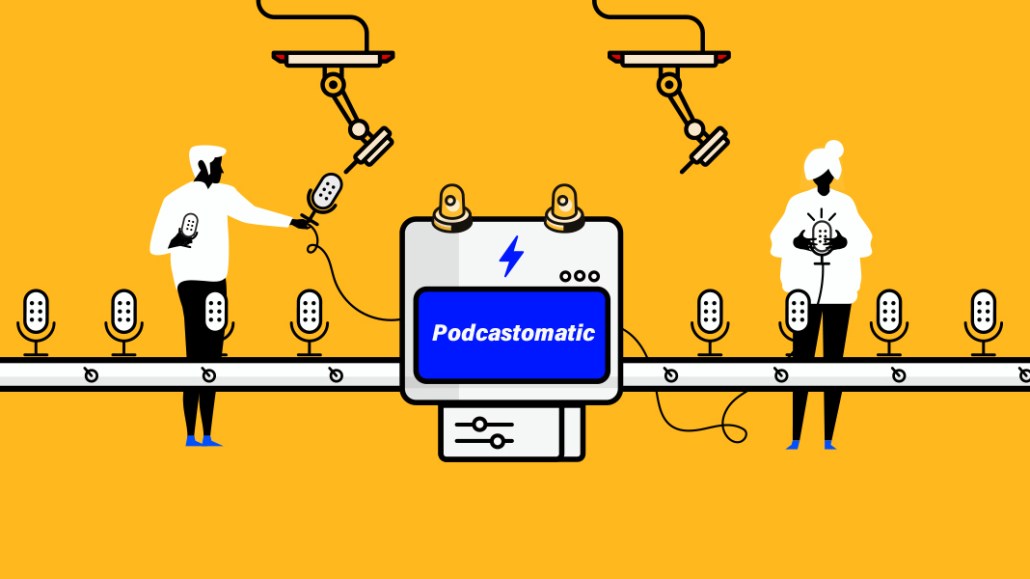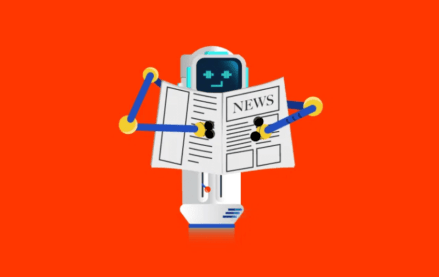As platforms and ad tech circle, podcasting’s small, beautiful age is drawing to a close

The IAB’s fifth annual podcast upfront could be the last one where platforms do not dominate in the proceedings.
While last year’s IAB Upfront presenters focused, for the first time, on measurement and targeting, the unofficial theme of this year’s podcasting is platforms. Whether that includes events on stage — Pandora is a first-time presenter this year — or gossip off it, podcasting appears to be going in the direction of every other digital media format: dominated by a handful of platforms, with smaller individual publishers and networks getting creative to fight over what’s left.
Some publishers will have some advantages when that switch happens. And a number of key questions, such as how advertisers balance between host-read and network-optimized ads, or how platforms will monetize shows on their platform, remain. But as podcasting speeds toward becoming a billion-dollar market by 2021, up from the $479 million generated in 2018, that growth will come from brand advertisers, who demand scale and ease from sellers.
That means podcasting will inevitably become more like the display ad ecosystem: commoditized, automated, audience-driven rather than contextual. The podcast ad world has been craft; it’s destined to be mechanized.
“It’s really hard to scale the program-specific, custom host-read stuff,” said an executive at one media agency that invests in audio. “It used to be death by a thousand cuts. … If you were interested in doing podcasting as a client, and you could work with two or three big partners, that is much more interesting than trying to do a hundred different deals.”
The balance of power has not tipped yet, in part because the biggest platforms are still getting their ducks in a row; many of the acquisitions that brought podcasting onto platforms including Spotify and Pandora were made less than a year ago.
“I think they’re still learning about what they bought,” said Stephen Smyk, svp of podcasting and influencer spending at the media agency Veritone One.
But the rest of the industry is trying to get itself ready for a world where marketers expect mass reach and compliance with industry metrics. Late last week, Stitcher’s ad network, Midroll, gave shows in its network a timeline for moving over to a different hosting solution, as part of a gradual shift toward an impression-based system that would allow Midroll to sell advertising differently.
“The rubber’s hitting the road,” Stitcher CEO Erik Diehn said. “There’s so much inventory out there right now that’s inefficiently transacted when you do it on an episode-by-episode basis.”
That efficiency will allow more brand dollars to pool into the space. Brand advertising now constitutes 38% of podcast revenue, according to IAB figures; branded content accounts for another 10%. Those buyers are accustomed to simplicity and scale, two things that buyers say podcasting, to date, has struggled to deliver.
Other players in the industry are acting accordingly. In August, Art19, the enterprise podcast hosting and monetization platform, announced it had launched an ad network, which would allow buyers to place ads on a listener-by-listener basis across 200 different shows.
While individual publishers will never be able to deliver the scale that platforms offer, some hope to counter by rolling their podcasting into the multifaceted deals they are trying to construct for advertisers. Being able to construct an ad program that includes digital, print, audio and other formats could give publishers a head start in proving out how podcast ads fit into multi-touch attribution models, Soon said.
“What we’re seeing is these platforms really following where the dollars are,” said Zoe Soon, the IAB’s vp of mobile. “It’s on publishers to say, ‘We have this audience; here are the ways we can reach them.'”
Others, such as Barstool Sports, are planting a flag. Late Tuesday, ahead of Barstool’s first-ever upfront, CEO Erika Nardini uncorked a rant on Twitter about where podcast advertising was going, vowing that Barstool, which generates a third of its revenues from podcast ads, would never go full programmatic.
“When you make ads the skippable middle man, they will get skipped,” Barstool Sports CEO Erika Nardini wrote on Twitter Tuesday. “When you are a part of only one piece but not the entire conversation, you will get lost.”
“This is unsurprising and media gentrification at its finest,” said Dan Granger, the CEO of Oxford Road. “Podcast started as a free-for-all, and those of us who were early enough into the space all benefited greatly. But now they are going to start imposing new rules and processes that dilute the value of every impression beneath what it was before.”
More in Media

Media Briefing: ‘Cloudflare is locking the door’: Publishers celebrate victory against AI bot crawlers
After years of miserably watching their content get ransacked for free by millions of unidentified AI bot crawlers, publishers were finally thrown a viable lifeline.

How Vogue could navigate potential industry headwinds as Anna Wintour — who agency execs say made ad dollars flow — brings on new edit lead
Anna Wintour’s successor at Vogue will have to overcome the myriad of challenges facing fashion media and the digital publishing ecosystem.

Here are the biggest misconceptions about AI content scraping
An increase in bots scraping content from publishers’ sites represents a huge threat to their businesses. But scraping for AI training and scraping for real-time outputs present different challenges and opportunities.








